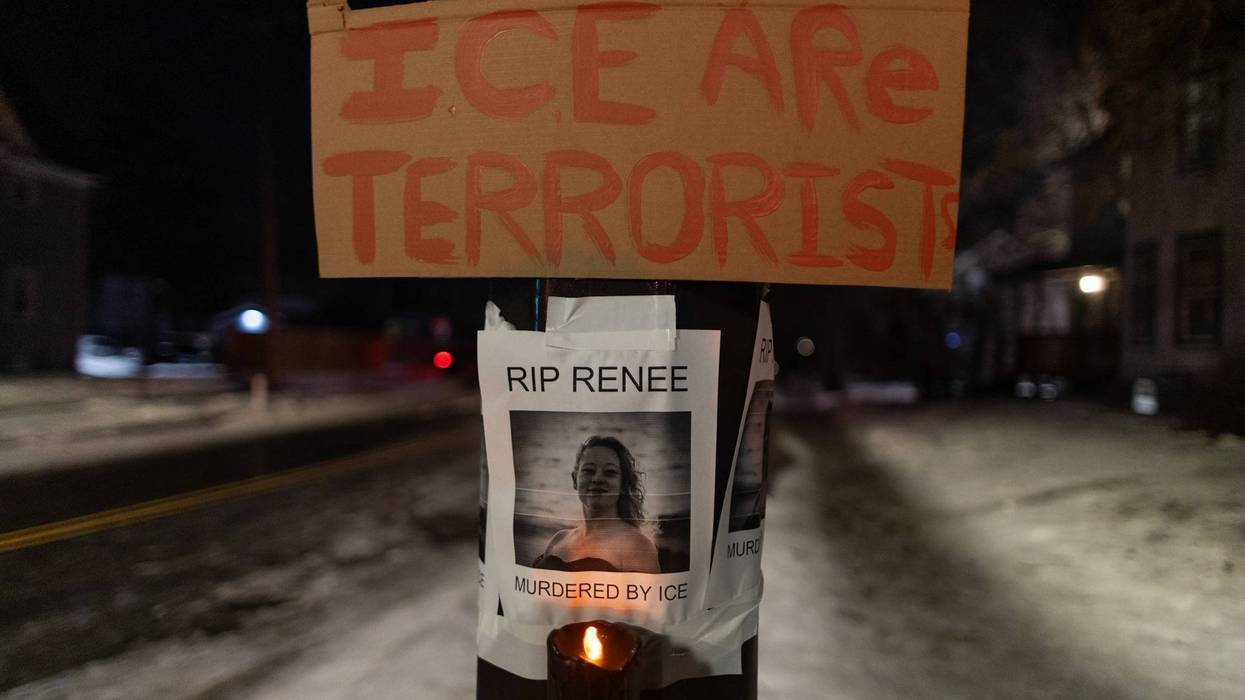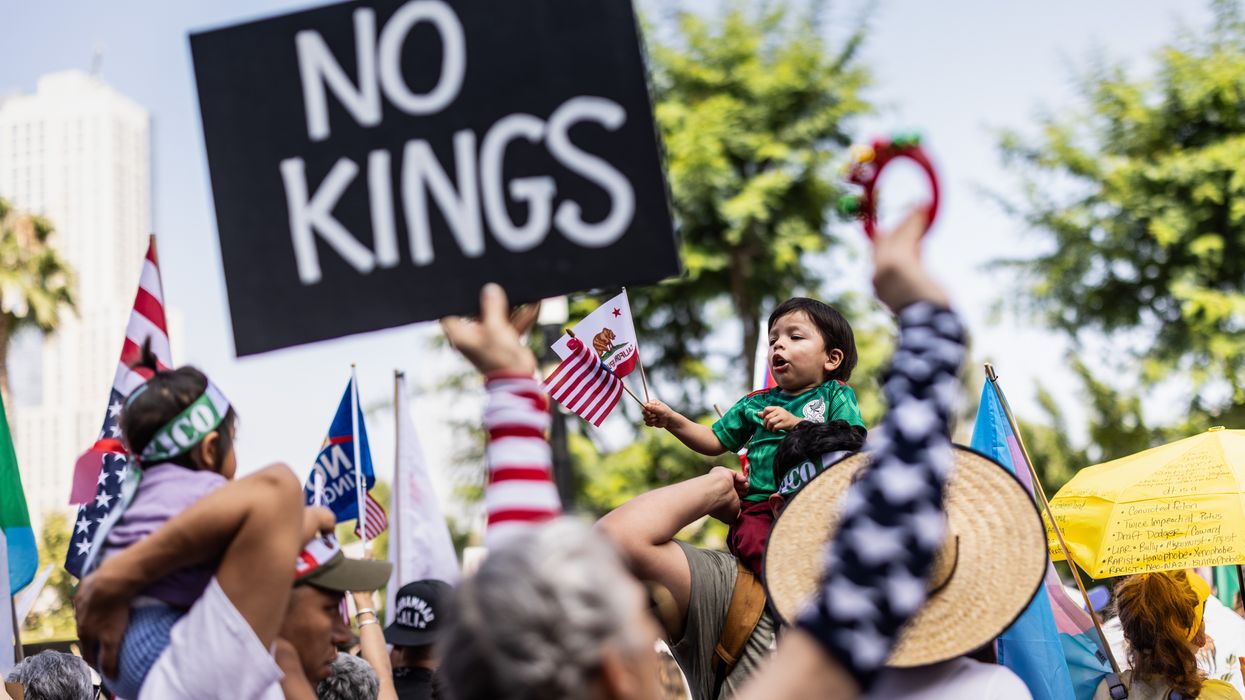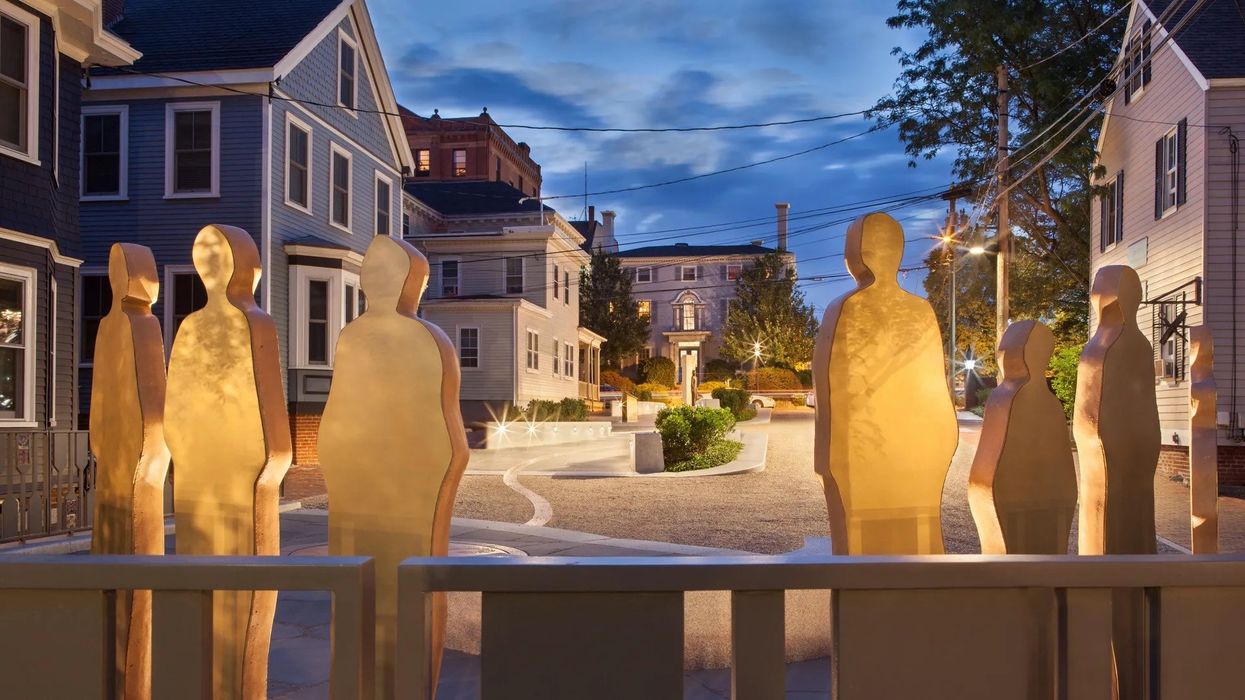Renee Good Died From the Kind of State Violence Our Founders Warned Against
When state authority stops serving the people but instead lords over them, stops being questioned by the media and the people, and stops fearing consequences because it lives behind a shield of immunity, a police state is inevitable.
When I read that the young mother who was executed at point-blank range by one of President Donald Trump’s Immigration and Customs Enforcement goons on Wednesday was named Renee Nicole Good, it sent a chill down my spine.
As the pain and outrage was washing through me, it also struck me as almost too much of a coincidence that she was there protesting state violence and Ben Franklin had been using the name “Silence Dogood”—as in “Do Good”—to warn American colonists about the very same dangers of state violence.
When 16-year-old Franklin slipped his first Silence Dogood essay under the door of his brother’s print shop in 1722, America had few police departments, no body cameras, no qualified immunity, and few militarized patrols prowling city streets. But young Franklin already understood the danger.
Writing as a fictional widow, Franklin warned that “nothing makes a man so cruel as the sense of his own superiority.” The remark was in the context of self-important ministers, magistrates, and petty officials, but he was also talking about raw state power itself as we saw with the execution of Renee Nicole Good.
If we want to live in the democratic republic Franklin, Paine, and Madison imagined where power is given by “the consent of the governed,” then outrage isn’t enough.
Power that is insulated, Franklin taught, answers only to itself and believes its very authority excuses the violence it uses.
Franklin’s insight didn’t die on the printed page but, rather, became the moral backbone of the American Revolution. As Do-Good, he repeatedly cautioned us that power breeds cruelty when it’s insulated from consequence, that authority becomes violent when it believes itself superior, and that free speech is usually the first casualty of abusive rule.
In "Essay No. 6", in 1722, Dogood wrote:
Whoever would overthrow the Liberty of a Nation must begin by subduing the Freeness of Speech.
Renee Nicole Good was on that Minneapolis street to express her freedom of speech, her outrage at the crimes, both moral and legal, being committed by ICE on behalf of Donald Trump, Tom Homan, Kristi Noem, and Stephen Miller.
Thomas Paine took Franklin’s warning and sharpened it into a blade. Government, Paine said, is a “necessary evil” but when it turns its legally authorized violence against its own people, it becomes “intolerable.” Authority doesn’t legitimize force, Paine argued; instead, the ability to use force without accountability inevitably corrupts authority.
And here we are. This is the ninth time ICE agents have shot into a person‘s car, and the second time they’ve killed somebody in the process.
For Paine, violence by agents of the state isn’t an aberration, it’s the default outcome when power concentrates without clear accountability. Where Franklin warned about cruelty born of a sense of superiority (as armed, masked white ICE officers search for brown people as if they were the Klan of old), Paine warned us that force will always be directed against the governed unless that power is aggressively constrained.
James Madison—the “Father of the Constitution”—then took both men at their word. He didn’t design a constitution that assumed virtue; instead, he designed one that assumed abuse.
“If men were angels, no government would be necessary,” he wrote in Federalist 51, adding, “You must first enable the government to control the governed; and in the next place oblige it to control itself.”
Because we and our politicians and police aren’t angels, Madison pointed out, state power must be restrained, divided, watched, and continuously challenged. Which is why the Framers of the Constitution adopted the checks-and-balances system—splitting the government into three co-equal parts—that Montesquieu recommended, based on what he had learned from the Iroquois (as I lay out in The Hidden History of American Democracy).
Franklin himself became even clearer about the threat of unaccountable state-imposed violence as he aged. Governments, he repeatedly warned, always claim violence is necessary for safety and we saw that Wednesday when puppy-killer Kristi Noem claimed that Renee Good was a “domestic terrorist.” Her comment is the perfect illustration of Franklin’s assertion that state violence, once normalized, always tries to claim justification.
To add insult to murder, Trump pathetically waddled over to his Nazi-infested social media site and claimed:
The woman driving the car was very disorderly, obstructing and resisting, who then violently, willfully, and viciously ran over the ICE Officer, who seems to have shot her in self defense. Based on the attached clip, it is hard to believe he is alive, but is now recovering in the hospital… [T]he reason these incidents are happening is because the Radical Left is threatening, assaulting, and targeting our Law Enforcement Officers and ICE Agents on a daily basis.”
Silence Dogood would have confronted him head-on, as she-Franklin repeatedly did with the petty, self-important officials of colonial New England. He repeatedly noted that surrendering liberty for a little temporary security not only doesn’t prevent state brutality but actually it invites it. In a 1759 letter, Franklin explicitly warned us about men like Donald Trump and the siren song of “law and order”:
Those who would give up essential Liberty, to purchase a little temporary Safety, deserve neither Liberty nor Safety.
Once a state teaches its agents that force is the solution, force becomes their habit. That’s how police states are formed out of democracies, as the citizens of Russia, Hungary, and Venezuela have all learned. And now, it appears, we’re learning as America becomes the world’s most recent police state.
This isn’t an uniquely American problem: It’s older than our republic. And Franklin told us exactly how it happens: When state authority stops serving the people but instead lords over them, stops being questioned by the media and the people, and stops fearing consequences because it lives behind a shield of immunity, a police state is inevitable.
As Minnesota Gov. Tim Walz noted Wednesday, the killing of Renee Nicole Good in Minneapolis wasn’t a “tragic anomaly.” It was the predictable outcome of systems Franklin would have recognized instantly; the kind of corrupt strongman systems that reward domination, excuse cruelty, and punish dissent.
Trump wants us on the “radical left” to shut up and go away. But Ben Franklin taught us that silence in the face of power isn’t neutrality but is, instead, an extension of permission. He wrote as Silence Dogood precisely because he understood that abuse flourishes when citizens turn their eyes away and lower their voices.
If we want to live in the democratic republic Franklin, Paine, and Madison imagined where power is given by “the consent of the governed,” then outrage isn’t enough. We must demand accountability, insist on transparency, and refuse to accept state violence and a firehose of official lies as the price of order.
Three centuries ago, a teenage printer’s apprentice warned us that silence enables abuse. He was right then. He is right now.


